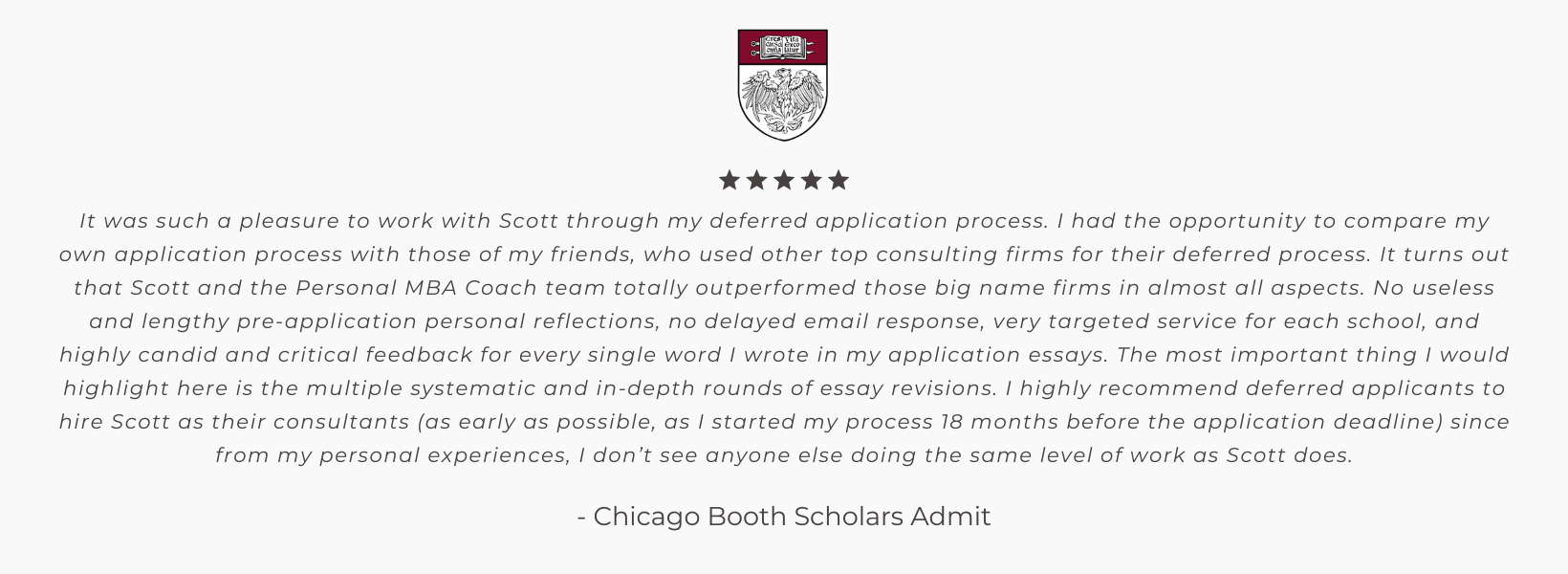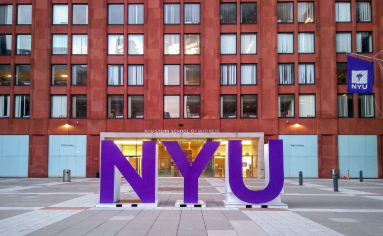If you are a college senior or a graduate student in your last year of studies and are confident that “earning an MBA” is on your bucket list, you might consider applying NOW for an MBA through what is known as a Deferred MBA Program. While Harvard Business School’s 2+2 is the most well-known deferred MBA option, an increasing number of top business schools offer current students the chance to secure a spot for a future year.
If you are like many of the college students we speak to, you may be wondering what the benefits of a deferred MBA are, what schools are looking for and how you can succeed. Personal MBA Coach is here to help! For a quick overview, watch our quick tips feature with Poets&Quants.
What Are the Benefits of a Deferred MBA?
-
Flexibility on When You Start Your Studies
Although some programs, such as HBS’s 2+2, have a more defined path (and even then there is some wiggle room), in many cases deferred MBA applicants have a choice of whether to defer their enrollment by 2, 3, 4 or even more years. This means you can lock in your admission offer now but still start school when it is right for you.
-
Ability to Start an MBA Earlier in Your Career
In some fields, for example, consulting, the MBA is generally the great equalizer. So, the earlier you start an MBA, the faster you will reach your ultimate goal. However, it is very challenging to apply to a top MBA program with only two years of professional experience (in some cases, nearly all these early career slots go to deferred applicants). A deferred MBA is therefore a great way to start your MBA with only a few years of experience.
-
Apply While You Are a Student
While you might feel stretched, believe us, you will have a LOT more time to work on your applications as a college senior or a graduate student than you will while working full time. Most pre-MBA jobs are very demanding, and senior spring semester often can be an easier time on campus. While it may be tempting to coast, if you know an MBA is in your future, take advantage of the time and flexibility being a student affords you and get your MBA applications out of the way.
-
Deferred MBA Applicants Get an Extra Application Opportunity
It is no secret that admissions rates to top MBA programs are low. According to US News, HBS admitted just 14.5% of applicants last year (and even fewer the year before) while Stanford GSB accepted only 8.6% of applicants in the most recent cycle. In many cases, successful MBA applicants applied to their dream programs more than once. MBA admissions committees like reapplicants (provided they have demonstrated growth), but reapplying can delay your ultimate enrollment date. By applying as a student, you get another chance! Even if you are not accepted, you have already demonstrated your commitment to their program and to getting an MBA.

What Are Top MBA Programs Looking for from Deferred MBA Candidates?
Naturally, there are some core qualities—including leadership, passion and direction—that all deferred MBA program are looking for (more on how to demonstrate these below). In many cases, these are similar to the qualities full-time MBA applicants are evaluated on.
However, what business schools are looking for from deferred applicants can vary by school.
Some top MBA schools, for example Columbia Business School, are looking to attract the best talent. In this case, no preference is given to a particular industry.
In other cases, schools use their MBA programs to attract candidates from particular sectors. Harvard Business School, for example, has a preference for STEM majors. Presumably, these applicants are less likely than their peers in finance and consulting to pursue an MBA later in their career. Meanwhile, Berkeley Haas emphasizes their interest in goal-driven candidates who actively seek leadership experience.
Consider what each school is looking for when choosing your target list!
How Can I stand out as a Deferred MBA Applicant?
Deferred MBA Programs Seek Out Proven Leaders
As with full-time programs, deferred MBA programs are looking for candidates with leadership experience. In fact, some programs have a dedicated leadership essay in their deferred MBA applications. For example, the first essay in the Kellogg Future Leaders’ application mirrors the full-time essay and is entirely aimed at discussing a leadership example. (For tips on how to tackle this essay, check out Personal MBA Coach’s tips for the full-time MBA application and apply them to your Kellogg Future Leaders’ essay.)
Since it is often not possible for you to demonstrate traditional professional leadership at such a young age, the admissions committee is looking for other leadership experience, both on and off campus. Successful candidates have taken significant roles in organizations they are passionate about. Some have even started their own non-profits or businesses (though this is far from a requirement).
Clear Career Vision for Their Future Plans
Successful deferred MBA applicants also have a clear career vision and ideally have taken steps to demonstrate this commitment. College students often are unsure of their future plans. While there is nothing wrong with that, admissions committees are looking for decisive deferred MBA candidates. Before applying you should have both an immediate plan, a short-term goal and a long-term goal. Of course no one will hold you to the latter two, but you want to chart your course, starting now! Struggling to shape your career goals? Check out this quick tips video with Scott Edinburgh, Founder of Personal MBA Coach.
As part of the application process, nearly all programs will ask you to discuss what you plan to do BEFORE starting business school. With application deadlines often falling in April, many successful candidates already will have locked down a post-graduation job. When this is not possible, applicants should have a specific immediate career target. If you are earlier in your studies, you might also consider looking for in-semester internships in your chosen field to demonstrate your commitment to and understanding of your future career path.
Finally, you should clearly articulate why applying now vs. later in your career makes sense for you! The answer to this will vary on a case-by-case basis but think about why YOU want to apply now.
Learn More About Our Deferred Admissions Consulting Packages
Need help charting your deferred MBA application strategy? Check out Personal MBA Coach’s Deferred MBA Admissions Consulting Packages for more details on how we can help!




















